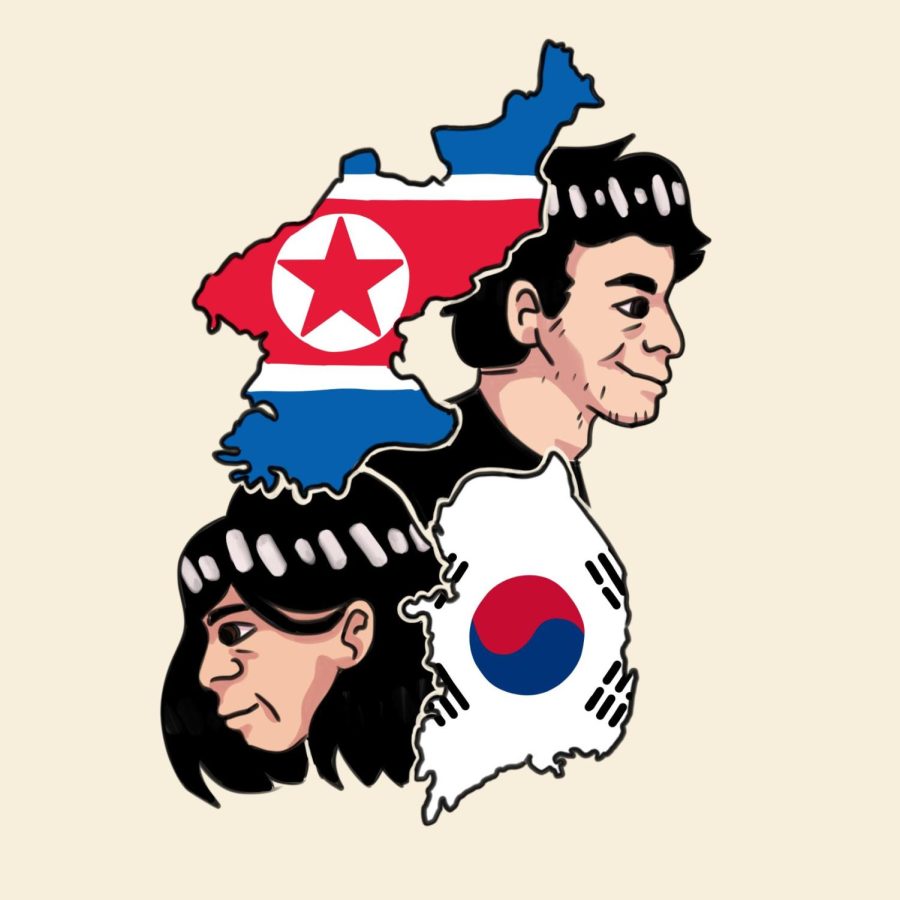The Western Perspective of North Korea: Reality or Exaggeration?
December 6, 2022
Long before the division of Korea, there was a united nation with rich history and culture. Under the Joseon dynasty (1392-1894), many modern aspects of Korean culture were passed down, including its language, arts, and attire. Seoul, the capital of the south, and Pyongyang, the capital of the north, have been cultural hotspots throughout the history of Korea. However, North Korea is currently ranked high in abuses of human rights and is one of the world’s most sanctioned countries, placing number four, according to Statista. How did a country, once full of cultural prosperity, become widely condemned in the modern day?
Beginning in the 19th century, control of the Korean Peninsula had been fought over by neighboring countries, and the Sino-Japanese War eventually resulted in Japanese rule over Korea. However, after the Japanese surrender of World War II, the country was split along the 38th parallel, with the Soviet Union backing the North, and the United States taking influence over the South. Built-up tensions led to the devastating Korean War, which concluded with no official victor. According to The Asia-Pacific Journal, the U.S. dropped about 635,000 tons of bombs on the country, killing approximately 12-15% of the North’s population. Colonialism was used as a weapon to tear the Korean people apart, leaving millions of people dead and cities demolished. These historical war crimes are a crucial reason for the modern repercussions left on the North Korean people. Though the nation recovered swiftly, surpassing the GDP of South Korea, the success came to an end following the dissolution of the Soviet Union. Current repressive living conditions in North Korea, which are often discussed across various news sources, point to communism as a cause. However, the historical context of Western imperialism that divided and harmed the peninsula is essential in understanding the circumstances of the country, but is conveniently glossed over in attempts to promote anti-communist rhetoric.
More recently, various news outlets have highlighted the dangerous presence of nuclear weapons in North Korea, while dismissing the fact that countries—including the United States, England, and France—hold thousands more combined. A double standard is shown through this: when a country in the East emerges with few nuclear weapons, it displays a threat to democracy and peace, but when Western countries hold onto and use these devices, it represents democratic values. Shifting the critical gaze onto countries like North Korea is key for the West to solidify its global dominance.
The use of sensationalism and fear-mongering tactics in news also contributes to the spotlight. Exemplified through the 2019 “Christmas gift” incident, alleging that a “surprise” from North Korea would arrive in the U.S., news massively circulated the internet and social media, only for nothing to occur. Buying into these exaggerated news articles is harmful and builds up unnecessary fear.
As you read any published news, especially from a Western narrative that covers events in the East, continue to be skeptical before resharing unwanted fear to the public by looking out for hidden intentions and undertones.
This article also appears in our November 2022 print edition.









